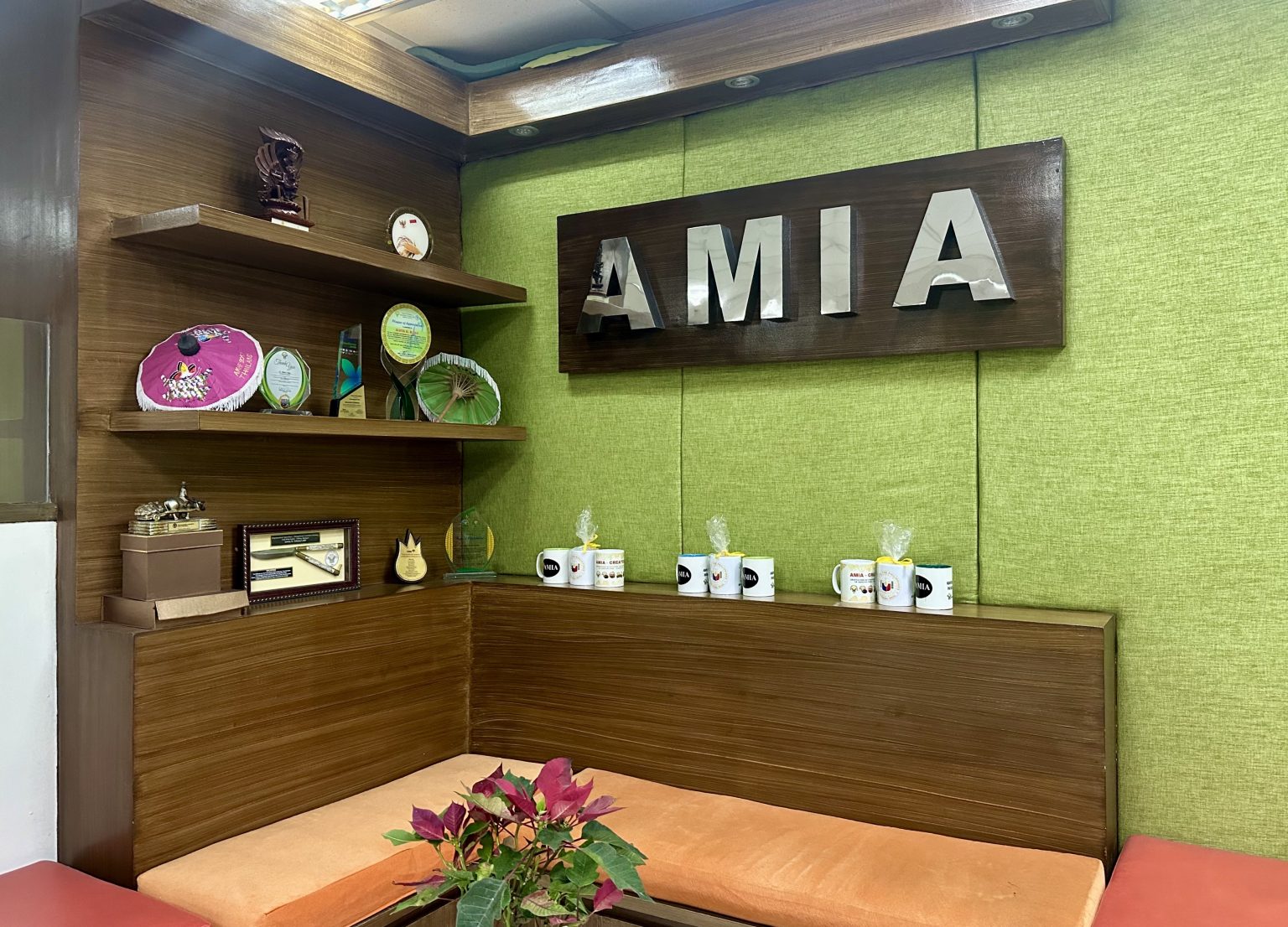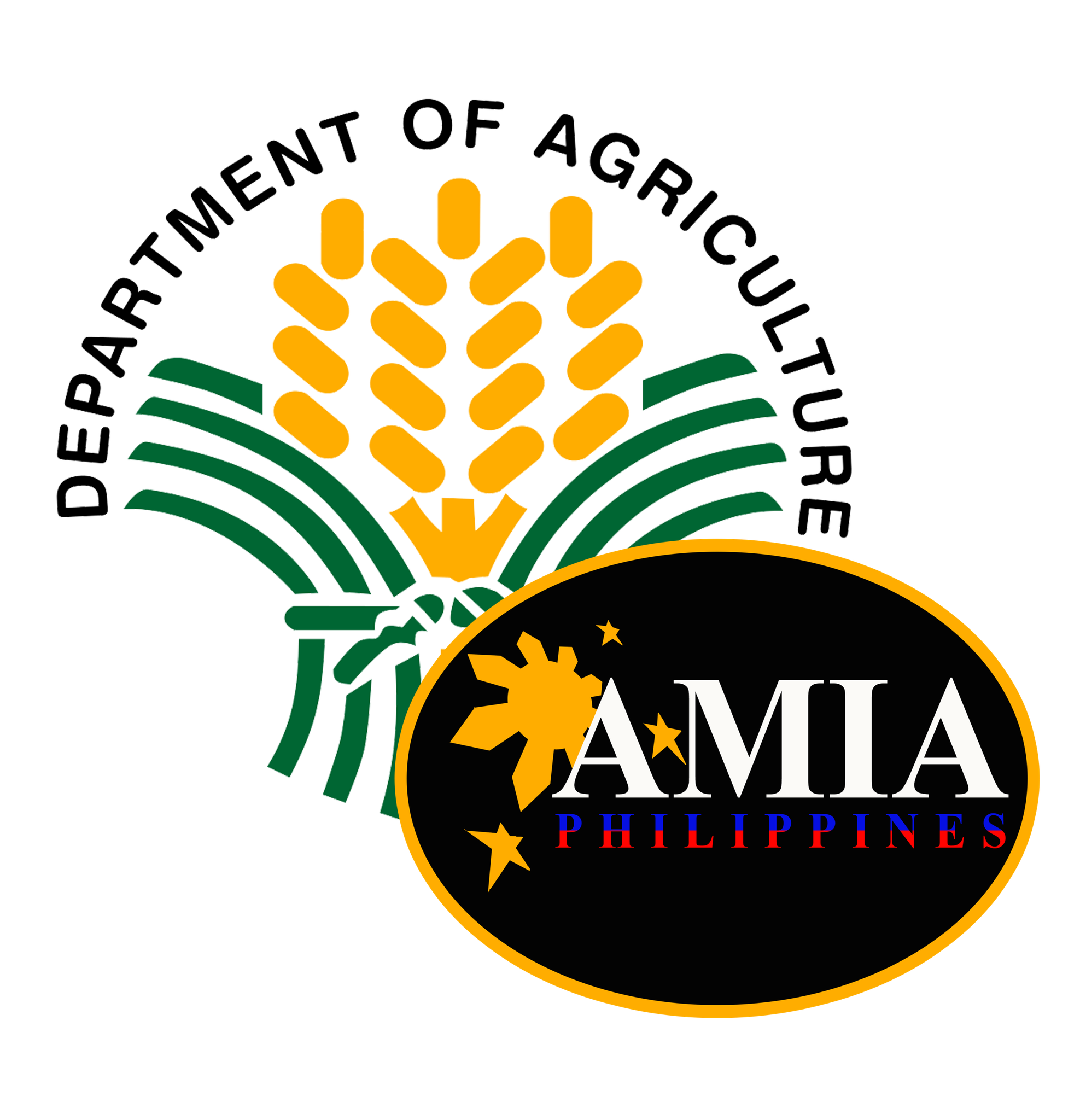
The Department of Agriculture (DA) Climate Resilient Agriculture Office (CRAO), formerly known as DA Systems Wide Climate Change Office (SWCCO), is the office tasked to provide strategic direction and oversight in mobilizing the DA’s resources and capacities towards achieving its climate resilient agriculture agenda.This agenda encompasses creating climate-resilient food systems and achieving sustainable increases in productivity, food self-sufficiency, and incomes of farmers and fisherfolk, all in the face of a constantly-changing climate.
The DA CRAO implements the flagship program of the DA for climate adaptation and mitigation, known as the Adaptation and Mitigation Initiative in Agriculture or AMIA Program. The overarching vision of the AMIA Program is a climate-resilient Philippine agriculture with empowered and prosperous farmers and fisherfolk. This vision is in harmony with the DA’s mantra “Para sa Masaganang Bagong Pilipinas.”
The realization of the vision involves building climate-resilient communities, livelihoods, and enterprises that are resilient to climate and economic shocks. This will be achieved through the climate resilient agriculture (CRA) approach of empowering local communities to manage climate risks while pursuing sustainable livelihoods.
FUNCTIONS
Main Functions
- Provides policy support highlighting the agriculture and fisheries sector’s plight amidst climate change, to enable access of available support mechanisms, including technology, capacity building, and finance, among others, for the implementation of local climate change adaptation (CCA) and climate risk management (CRM) actions to increase resilience and reduce vulnerability;
- Provides strategic direction and oversight in mobilizing DA resources and capacities towards the attainment of DA’s climate-resilient agriculture agenda in resilient food systems and achieve sustainable increased productivity, food sufficiency, and increased incomes of farmers and fisherfolk amidst climate change; and
- Supports the establishment of climate-resilient villages using the Adaptation and Mitigation Initiative in Agriculture (AMIA) village approach, through the implementation of a well-planned, coordinated, and responsive support services; and scaling up of these models into town/ province/region-level CRA, and from livelihoods to CRA enterprises.
Specific Functions
- Provides directions on technology development and generation of scientific information for climate change adaptation and mitigation;
- Strengthens the capacities of DA and Local Government Unit (LGU) personnel on planning and implementing climate change adaptation, and mitigation measures;
- Designs and coordinates the piloting of AMIA climate resilient Villages in all DA Regional Field Offices in the country;
- Designs and strengthens climate information service for agriculture;
- Develops and ensures dissemination of climate-informed decision support tools for agricultural and fisheries planning at the national, regional, municipal, and consolidated farms level as well as for research planning;
- Influences national and international policy and programs on climate change by active participation in various fora;
- Establishes, reviews, and monitors implementation of the Nationally Determined Contribution (NDC) for agriculture; and
- Accesses climate action support as contained in the Paris Agreement.
HISTORY
Republic Act (RA) No. 9729, also known as the Climate Change Act of 2009, mandated the mainstreaming of climate change in policy formation, such that policies and measures that address climate change are integrated in development planning and sectoral decision-making. RA 9729 served as the foundation for introducing climate change as a core subject to be integrated in government programs and projects.
Complying to RA 9729, the DA issued a memorandum in 2013 titled “Mainstreaming Climate Change in the DA’s Programs, Plans, and Budgets.” This memorandum established seven (7) Systems-Wide Programs on Climate Change, which consolidated the climate change policies and programs of the DA to cut across policy instruments and agencies of the department. These core systems-wide programs allowed the Department to better address climate change vulnerabilities and risks in crafting and implementing the nation’s agriculture and fisheries programs. This initiative strengthened the Department’s position in creating national and regional agricultural development plans that align with climate change considerations.
The 7 Systems-Wide Programs included the 1) Mainstreaming Climate Change – Adaptation and Mitigation Initiatives in Agriculture; 2) Climate Information System; 3) Philippine Adaptation & Mitigation in Agriculture Knowledge Toolbox; 4) Climate-Smart Agriculture Infrastructure; 5) Financing and Risk Transfer Instruments on Climate Change; 6) Climate-Smart Agriculture & Fisheries Regulations; and 7) Climate-Smart Agriculture Extension System.
During this transition, the DA’s existing Climate Change Office was renamed as the DA Systems-Wide Climate Change Office or SWCCO to reflect the changes introduced by the memorandum.
In 2020, DA Memorandum Circular (MC) 4, titled “Institutionalization of Climate Resilient Agriculture,” was issued. The memorandum institutionalized climate resilient agriculture within the DA to address the growing requirements for disaster and climate resiliency in the agriculture and fishery sector. Part of this initiative was renaming SWCCO to CRAO, becoming the primary office responsible for providing oversight and strategic direction in mobilizing resources and capacities for the Department’s CRA Agenda.
MC 4 series of 2020 outlined different actions to respond to the growing needs for disaster and climate resiliency in the agriculture and fishery sector. These actions included mainstreaming climate- and weather-informed advisories, enhancing commodity roadmaps, conducting CRVA, leveling up of AMIA Villages into climate resilient enterprises, and disaster-risk reduction financing and risk transfer, among others.
Also in 2020, the DA CRAO was tasked to manage the Balik-Probinsya, Bagong Pag-asa (BP2) Program. The BP2 Program, conceptualized during the height of the COVID-19 pandemic, was a program of the national government which aimed to ensure balanced regional development and equitable distribution of wealth, resources, and opportunities. The DA BP2 Program, as implemented by CRAO, empowered Filipinos who decided to go back to their home provinces for good to engage in sustainable rural development, while creating an environment conducive to agri-fishery entrepreneurship, promoting balanced regional development through resilient agro-industrialization.
Another DA MC issued in 2021 designated CRAO as the Secretariat of Key Strategy 9: Climate Change Adaptation and Mitigation measures under the OneDA Reform Agenda. As Secretariat, the DA CRAO facilitates the nine components that are adopted under Key Strategy 9, including the application of provincial and regional CRVA maps, scaling up of CRA options/practices/ technologies, research for development, and strengthening LGUs’ capacities in using climate resiliency decision support tools.
Today, the DA CRAO remains committed to promoting the mainstreaming of climate change in agri-fishery plans, programs, and projects, while building resilient farming and fishing communities. It works on two fronts—providing policy support and extending operational interventions—to enhance climate change resilience in the agri-fishery sector through the implementation of the AMIA Program.
